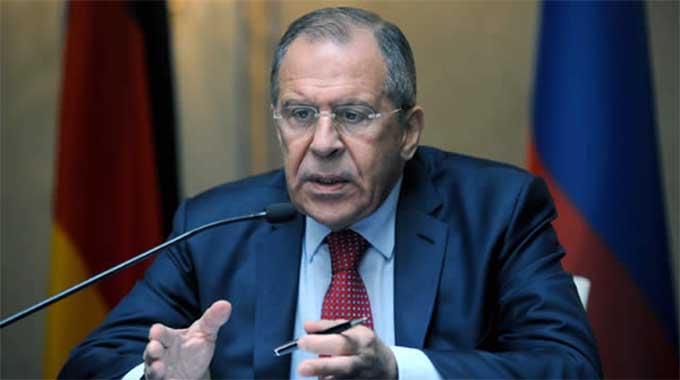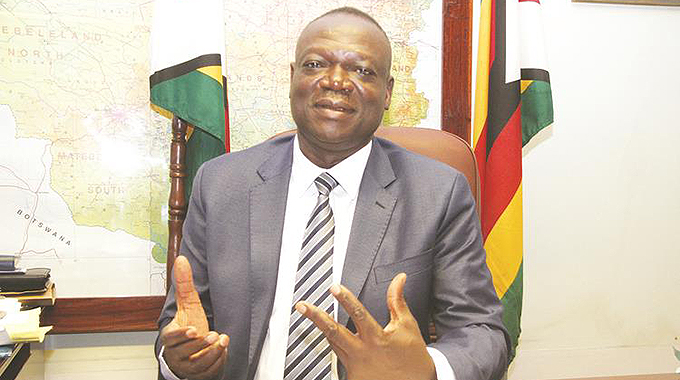US provides no objective data on Russia’s alleged breach of INF Treaty

The United States has not provided any objective data on Russia’s alleged trials of a ground-based cruise missile with a range exceeding the level permitted by the Intermediate-Range Nuclear Forces (INF) Treaty, Russian Deputy Foreign Minister Sergey Ryabkov said on Monday, November 26.
“We reject any speculations that we allegedly violated this treaty,” the high-ranking diplomat said at a special news briefing devoted to the INF Treaty.
“In order to begin a substantive probe into the issue raised by the US side, the United States was required to provide information on three key aspects: first of all, to clearly designate the missile that causes suspicions, secondly, to indicate the specific test launches, during which, in the US opinion, our commitments on the INF Treaty were breached, and, thirdly, and this is the most important thing, to present objective data, on the basis of which a conclusion was made that the range of the missile’s flight during the trials exceeded the range under the treaty,” the diplomat said. “The Americans have failed to provide such data up to now”.
US President Donald Trump said on October 20 that his country would quit the INF Treaty because Russia was allegedly in breach of that agreement. Russian Deputy Foreign Minister Ryabkov described this as a dangerous move. Washington was also criticised in Berlin and Beijing.
Recent decision to withdraw from the INF Treaty has triggered worries that it may cause a new round of arms race between Washington and Moscow. European countries, situated between the Atlantic and Russia, have the most vested interests in the treaty, the most significant achievement of arms control in the Cold War era.
The German government issued a statement saying that it will do its utmost to preserve the treaty. German Foreign Minister Heiko Maas told media that as the treaty concerns the vital interests of Europe, Germany will fight for it with all diplomatic approaches, including influencing Russia and putting the issue on top of NATO’s agenda.
France, another major country in the European Union and a member of the nuclear club, responded with a warning by its Foreign Ministry that “hasty” and “unilateral” decision on the INF Treaty would be “regrettable.” French President Emmanuel Macron told Trump about the importance of the treaty especially in regard to European security.
The United States made the decision without consulting European countries, the US allies in NATO and the parties with the most vital interests in this issue. “If Trump is thinking to deploy missiles in Europe, this initiative will cause big problems with NATO while, on the other hand, if the US gives a free hand to Russia to develop mid-range missiles because the treaty is over, Europe, like in the 1980s, could face serious challenges,” said Stefano Silvestri, former Italian undersecretary of state for defence.
In the meantime, London came out in support of the United States and NATO placed the responsibility for Trump’s decision on Russia, because in its opinion Moscow had apparently violated the treaty.
Washington’s pullout from the Intermediate-Range Nuclear Forces (INF) Treaty would be an ill-considered step and Russia is interested in keeping this document in force, Russian Foreign Minister Sergey Lavrov said after talks with his Portuguese counterpart Augusto Santos Silva last week. “We have stated on many occasions our position on US actions related to the Intermediate-Range Nuclear Forces Treaty and we believe that this would be quite an ill-considered step. The treaty had been recognised for many decades as a cornerstone of international, regional and global security and stability and the Russian Federation is interested in keeping this document in force,” Russia’s top diplomat stressed.
“When we heard about the US intention to quit the treaty, when we got the confirmation from representatives of the US administration in Washington that the intention was actually final, we tried to convince the US side of the need not to slam the door and consider the issues that require additional discussions so that the treaty keeps its force,” the Russian foreign minister said.
Russia’s top diplomat drew attention to the fact that while European countries had expressed their concern over the prospect of dismantling the treaty, none of them had come in support of a Russian draft resolution at the UN Security Council urging the treaty’s signatories to comply with their commitments and keep the document in force. “Unfortunately, our partners fell short of their unity to speak at the UN in favour of keeping this most important document in force,” Lavrov said.
The INF Treaty was signed on December 8, 1987 and took effect on June 1, 1988. It outlawed deployed and non-deployed intermediate range (1 000-5 000 kilometers) and shorter range (500-1 000 kilometers) ground-based missiles.
In recent years, Washington has repeatedly alleged Russia was in breach of the agreement. Moscow emphatically dismissed the charges and countered them with its own claims over the United States’ non-compliance. — Russian Embassy in Harare









Comments